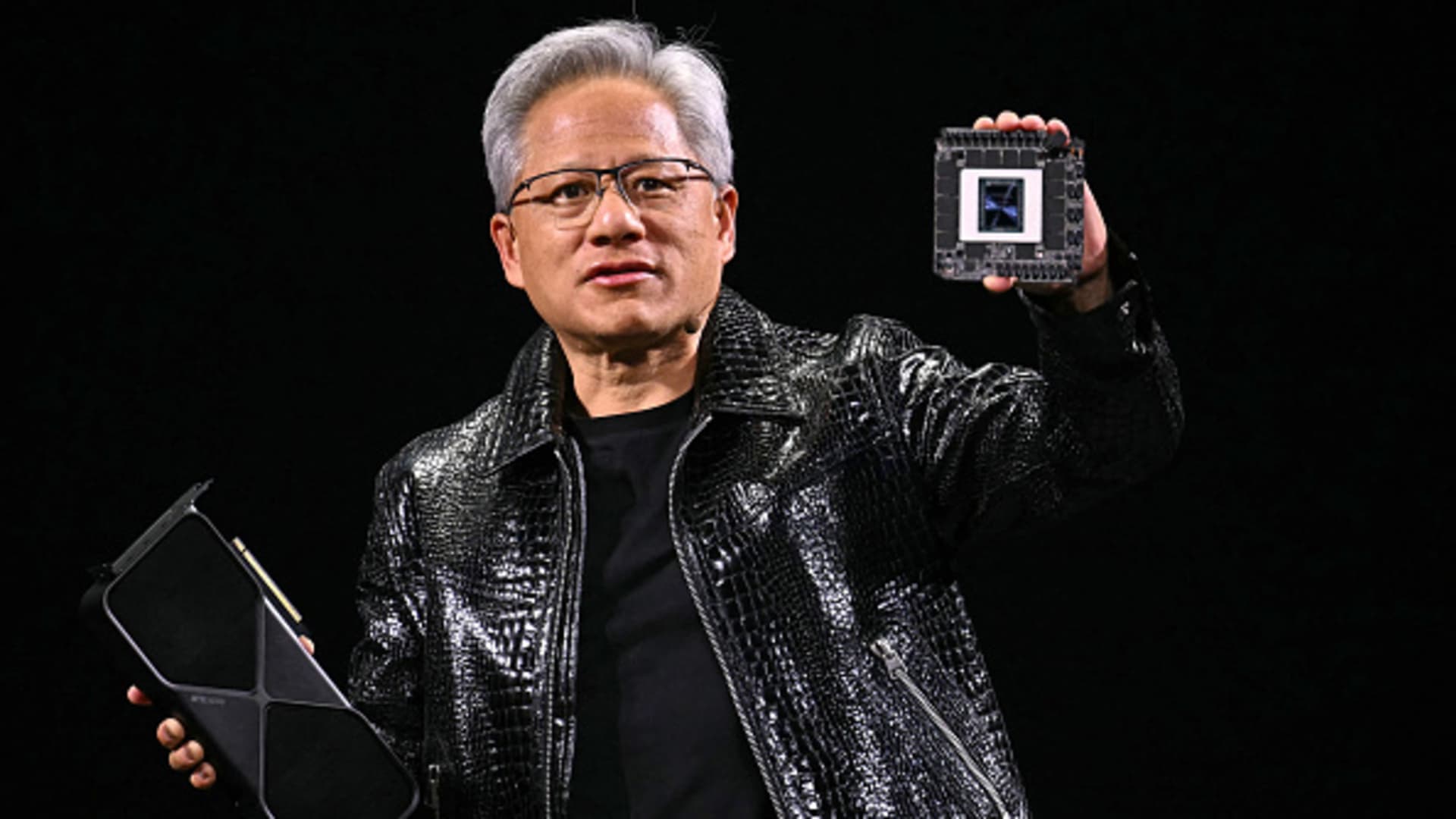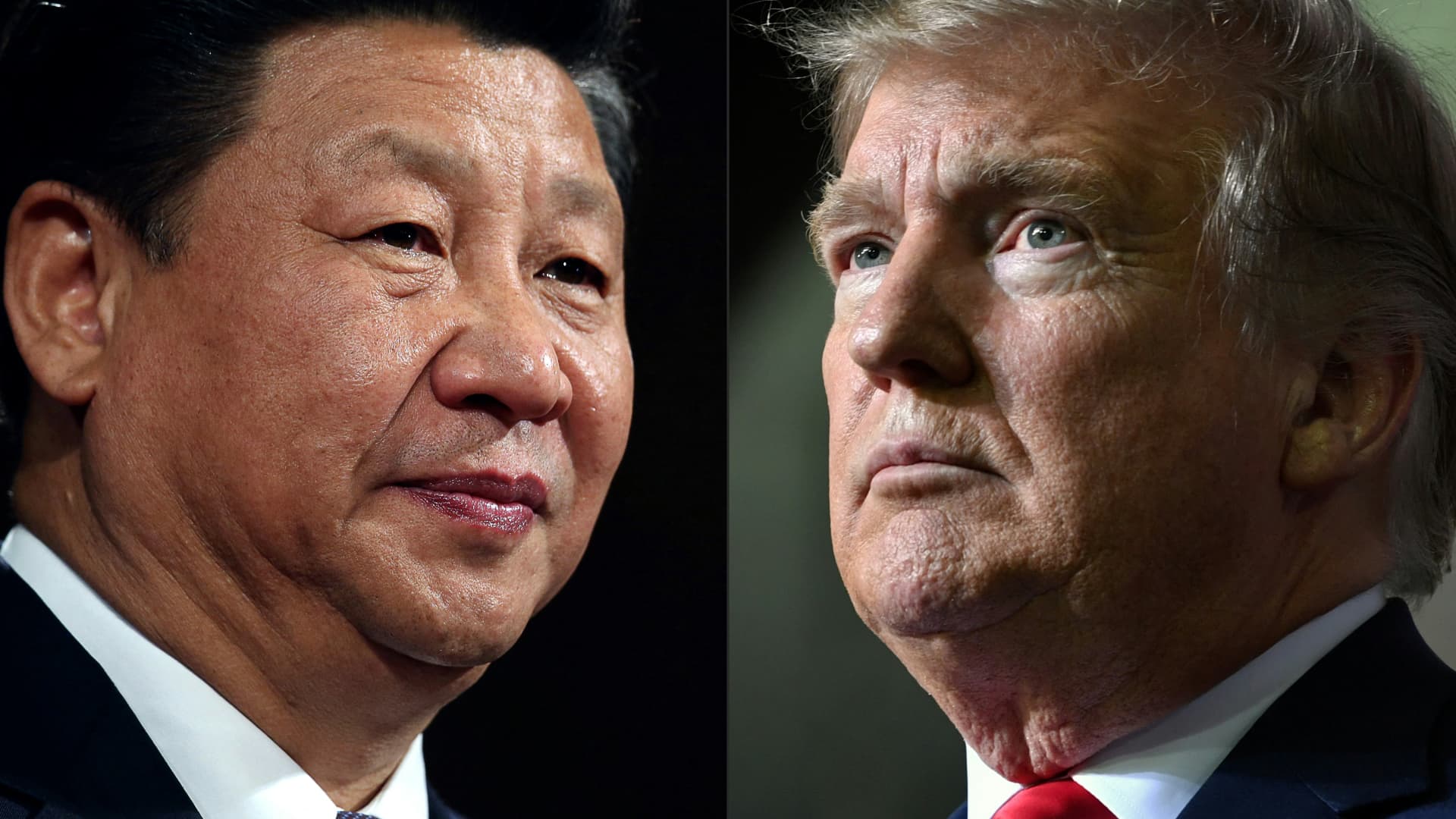Nvidia CEO Jensen Huang delivering a keynote address at the Consumer Electronics Show in Las Vegas, Nevada on Jan. 6, 2025.
Patrick T. Fallon | Afp | Getty Images
This report is from today’s CNBC Daily Open, our international markets newsletter. CNBC Daily Open brings investors up to speed on everything they need to know, no matter where they are. Like what you see? You can subscribe here.
What you need to know today
Potential new U.S. Steel bid
Cleveland Cliffs is partnering with rival Nucor in a potential bid for U.S. Steel, whose takeover by Japan’s Nippon Steel was blocked by the White House earlier this month, sources told CNBC’s David Faber. The offer would be in the high $30s a share. Nippon had planned to buy U.S. Steel for $55 per share in a deal valued at more than $14 billion.
Electric car boom in China to slow in 2025: HSBC
China sales of new energy vehicles, which include battery-only and hybrid-powered cars, will grow only 20% in 2025, forecast HSBC analysts. That’s a steep plummet from the 42% growth in 2024, according to data from the China Passenger Car Association. NEV penetration of new cars sold had exceeded 50% by the second half of the year, according to the association.
Additional chip export restrictions
The U.S. will be imposing new export restrictions on artificial intelligence chips, depending on the tier in which countries are classified, the U.S. government announced Monday. For instance, close allies to the U.S. will not face curbs in accessing AI chips. Nvidia, the biggest supplier of AI chips, called the rule “sweeping overreach” on Monday.
Elon Musk to acquire TikTok U.S.?
The Chinese government is considering a plan to sell TikTok’s U.S. operations to Elon Musk, Bloomberg News reported Monday, citing anonymous sources. That would allow TikTok to continue operating in the country if the U.S. Supreme Court decides to uphold a law that would effectively ban a Chinese-owned TikTok in the U.S.
[PRO] Opportunities outside the “Magnificent Seven”
The “Magnificent Seven” stocks drove much of the S&P 500’s 23% returns in 2024. While a portfolio manager expects those stocks still have room to run this year, he advises investors to be selective within the Magnificent Seven — and sees opportunities in tech stocks outside that basket.
The bottom line
Tech stocks underperformed on Monday as investors took profit on the victors of 2024 and looked for this year’s winner.
The tech-heavy Nasdaq Composite lost 0.38%. Big tech names popular with investors broadly fell in Monday’s session. Palantir — the top-performing stock in the S&P last year —slid 3.4%, while Nvidia lost 2%, building upon their losses from last week. Nvidia fell almost 6% during the period, while Palantir lost more than 15%.
“That’s a necessary part of a corrective phase in our view and we are likely further along in this correction than many investors recognize since many stocks peaked in late November, early December,” said AXS Investments CEO Greg Bassuk, adding that Friday’s jobs report “cemented” those concerns.
However, the S&P 500 inched up 0.16% and the Dow Jones Industrial Index climbed 0.86% as investors rotated into nontech shares such as Amgen, Caterpillar and UnitedHealth.
That’s not to say those sectors will be taking the mantle of market leader anytime soon — or at all. Sectoral rotation is a common phenomenon in markets, as investors secure their returns and look for the next stocks with upside potential. And the backdrop of rising rates puts more pressure on growth-oriented tech stocks than value stocks, which typically make up the Dow.
Furthermore, the artificial intelligence frenzy isn’t over, judging by the latest earnings reports from TSMC and Foxconn, which trades as Hon Hai Precision Industry. Both companies saw their revenue boom on high demand for AI-related products.
A long-term rotation out of tech and AI isn’t likely. But one within the field cannot be dismissed.
— CNBC’s Samantha Subin, Hakyung Kim and Brian Evans contributed to this report.











